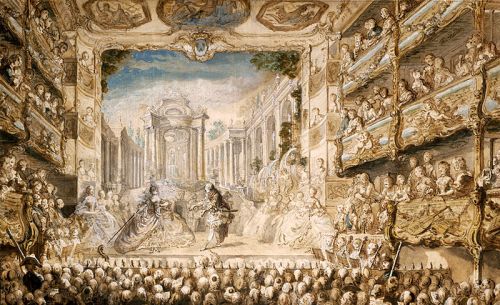
By the 18th century, the port city of Nantes had become an important transfer point in the Atlantic triangular trade, as ships carrying African slaves docked in the port, one of the first instances where this was allowed in France. The city’s strategic location was evident again during the French Revolution, when Nantes served a base in the battle against Vendée and royalist armies in 1793 Battle of Nantes. Like other French port cities, Nantes industrialized rapidly during the 19th century and specialized in the textile and food trade. The new economy contributed to the modernization of the city so that by 1879 one of the first trams powered by an air compressor engine was put into operation. The city’s development, however, was severely disrupted by several catastrophic floods in the early 1900s which led to the closure of several large manufacturing sites and factories.

In 1913, the Schola Cantorum de Nantes was founded under the direction of Marguerite Le Meignen (1878–1947), the first official statutes of the music association are dated 1920. It corresponded to the expectations of the new concert associations, such as the Concerts populaires (1910), as well as those of various choirs, including A Capella (1908) or Les Chanteurs de Notre-Dame (1902), that emerged across the city in the early part of the century. The Schola brought about musical innovation by establishing a large mixed choir, which included a symphony orchestra. By the first decade, the efforts of the concert associations appeared to wane. Although opera still flourished in the city theaters (despite a fire in the Théâtre de la Renaissance in 1912), choral singing flourished in the Maitrise de Notre-Dame or in amateur ensembles. The press and critics regularly pointed out that Nantes did not have concert companies like Angers.
Learn more in a new entry on the musical life of Nantes in MGG Online.
Below is a 2019 performance of Jubilate Deo by the Schola Cantorum de Nantes, directed by Thierry Brehu.








